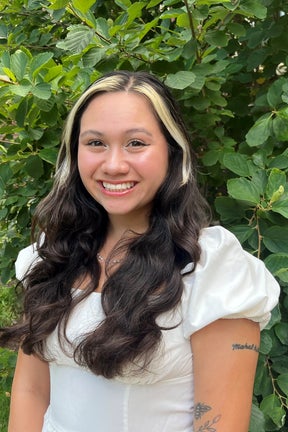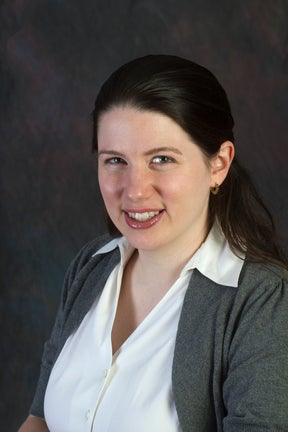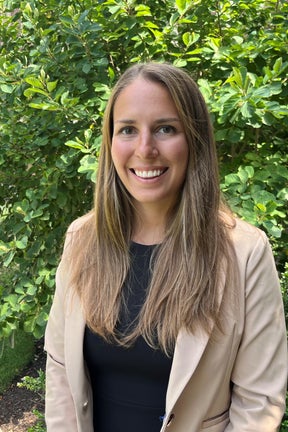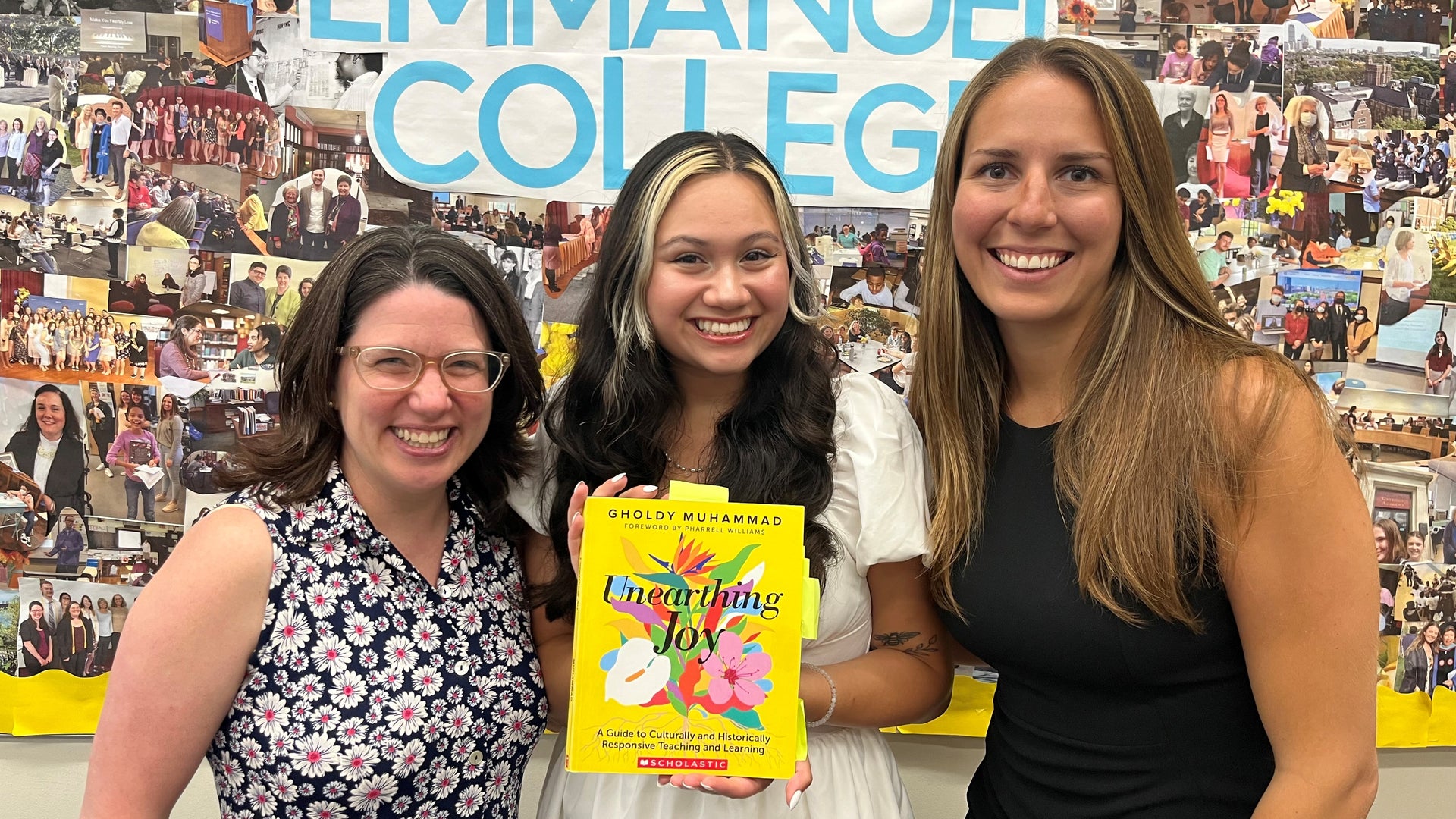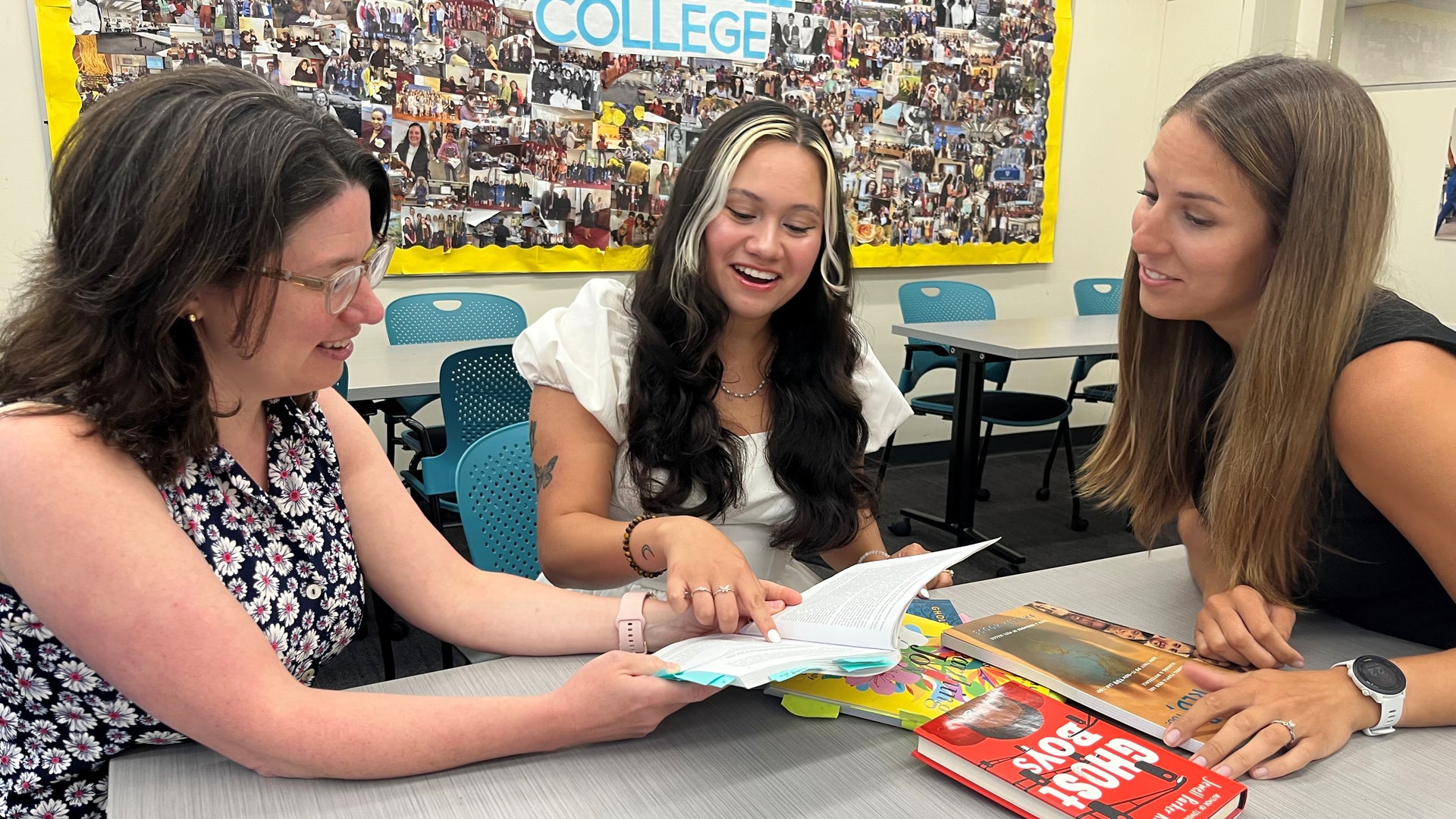Emmanuel College’s summer research program offers students and faculty alike the distinct opportunity to collaborate on scholarly work. This summer, 45 students across multiple disciplines and Academic Schools are conducting research with Emmanuel faculty.
Throughout this series, we will highlight the research going on throughout the summer, which will conclude with a poster session in the fall.
Summer research within Emmanuel’s School of Education is an opportunity for students to dive into educational theory and explore innovative teaching techniques. It also can help them refine their philosophies as educators and identify ideal career paths.
That has been the experience for elementary education major Alita Robinson ’26, who is spending the summer as a research assistant for Professor of Education Dr. Christine Leighton.
Robinson was a newcomer to research, but applied for the position after Dr. Leighton advised that it’s a major component of earning a doctorate in education. That’s one of Robinson’s goals, so she took the plunge—and is glad she did.
“This whole project has really brought to light what I actually want to do,” said Robinson. “I was thinking of pursuing a doctorate in education, but I didn’t know what it would be like. This definitely helped me, and it feels great.”
Getting Started in Research
Robinson’s journey in research started with a discussion about goals. Dr. Leighton was curious to learn more about her interests. The idea of rethinking education to make it more student-centered has always appealed to Robinson, and her ultimate goal is to open a school based on that approach. Dr. Leighton suggested Robinson conduct a research project that leans into those interests, noting it’s often a good starting point for newcomers.
“I think if a student is curious about research, the first thing they need to know is what they’d like to learn about,” said Dr. Leighton. “They have to figure out the questions that matter to them.”
The intersection of theory and practical application is a core element of learning at Emmanuel. It’s also central to Dr. Leighton’s applied research projects, which focus on taking compelling education theory and making it actionable in the classroom, while also evaluating its performance.
Robinson’s project is taking a similar approach, drawing on leading research about school design and effectiveness to inform her own process of drawing up an organizational framework for her ideal school.
The project started with a great deal of reading. Robinson relished the independence of the project, chasing down many notes of interest and weighing how relevant they were to her developing project. She soon gravitated toward recommended texts on transformative education, an area of study that focuses on leading theories of curriculum, equity, and formative education.
“I love being in leadership positions and I think it’s really important to foster that in children,” said Robinson. “With transformative education we want to raise children to be their own critical thinkers and have their own opinions and not just follow what the curriculum is based on.”
As the vision started coming together, Robinson began synthesizing the pieces into a framework that includes core values, learning objectives, and how students would be assessed. She’s also created a pamphlet for the new school, which will be presented to the Emmanuel community as part of a summer research poster session this fall. Overall, she said it has been a great learning experience.
“I feel more empowered as an individual,” said Robinson. “Now when someone asks for my opinion on these topics, I can give a solid answer and hopefully be convincing, because I did the research and took the time to really dive into these topics.”
That sort of growth is a common outcome from research, and Dr. Leighton said this project has been a great launching pad for Robinson to give it a try, while building expertise in her areas of interest.
“I think it’s beneficial because it helps her think about her own philosophy as a teacher and what she wants to create in her classroom, while also grounding it in what we know and best practices,” said Dr. Leighton. “I also wanted her to understand different school structures and what each choice means.”
Writing about Research
In addition to her own project, Robinson is co-authoring an article for a practitioner’s journal that will help teachers implement an award-winning advocacy unit that was developed through research at the School of Education.
The article, which was submitted for publication in the English Journal, is essentially a practical guide for implementing the unit, which was developed by Dr. Leighton and longtime research collaborator Kierstin Giunco ’17. The unit encourages students to read and communicate about social issues important to them; Giunco piloted it at the Mission Grammar School in 2020, and it netted her a 30 Under 30 Award from the International Literacy Association.
The experience launched Giunco into a new career focused on curriculum and culturally responsive teaching. She’s done this in the past through consulting and speaking at various education institutions, and she’s excited about having a new piece of literature to bolster those efforts.
Robinson’s role in that project was cross-referencing Giunco’s practice with leading research in that space from authors such as Dr. Gholdy Muhammad and Dr. Alfred Tatum, while also highlighting examples of how that educational approach can help students excel.
It was an opportunity for Robinson to flex her newfound research skills and try her hand at writing about research. She also appreciates their shared interests as educators.
“We have some of the same principles in education, and I could see the connections between her work and my own,” said Robinson. “I got to learn a lot about her project as well, and being part of that was amazing.”
Career Building through Research
A commitment to teaching all students is a core value for the Emmanuel School of Education, one that very much aligns with the ongoing focus of Dr. Leighton’s work. Her doctoral research centered on bilingualism and language learning—specifically looking at ways to bolster language and literacy learning in multilingual classrooms and that interest continues to this day.
The advocacy unit collaboration was one outcome of that interest, and it helped set Giunco on the path to recently taking a position as an Assistant Professor of Elementary Education at the University of Cincinnati, an R1 institution with a heavy focus on research. She’s excited to continue building on the body of work she established at Emmanuel in that new venue.
“The advocacy unit has filled such big moments of my own personal and professional growth,” said Giunco. “It’s fun to continue with it, but also to reflect on where I am now, because of that process.”
Giunco didn’t expect all of this to come from that first research project with Dr. Leighton, but she very much appreciates the impact it had on her story. She compared it to working on a painting together.
“I think what [Dr. Leighton] did for me, and now for Alita, is giving us a frame, that we were doing research, and what went into the frame depends on our interest and where we’re looking to grow,” said Giunco. “[Dr. Leighton] helps you paint the picture, but she lets you hold the brushes…and helped us find the resources to design it.”
Big picture, Dr. Leighton said the process of research holds many benefits for educators, regardless of which path they choose after college.
“Whether your focus is practical, or theory, or doctoral work, or teaching in the classroom, research is a career-building opportunity,” said Dr. Leighton. “Research is knowledge building, it increases your knowledge in an area and gives you more authority to speak on it.”
